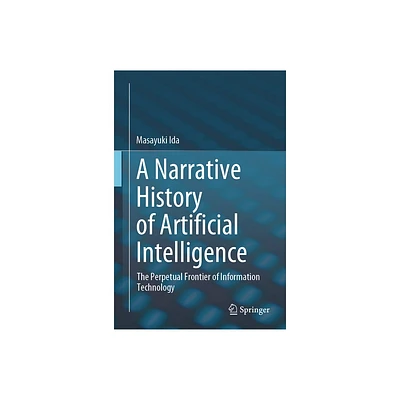Home
Philadelphia: A Narrative History
Loading Inventory...
Barnes and Noble
Philadelphia: A Narrative History
Current price: $39.95


Barnes and Noble
Philadelphia: A Narrative History
Current price: $39.95
Loading Inventory...
Size: Hardcover
*Product Information may vary - to confirm product availability, pricing, and additional information please contact Barnes and Noble
A comprehensive history of Philadelphia from the region’s original Lenape inhabitants to the myriad of residents in the twenty-first century
Philadelphia is famous for its colonial and revolutionary buildings and artifacts, which draw tourists from far and wide to gain a better understanding of the nation’s founding. Philadelphians, too, value these same buildings and artifacts for the stories they tell about their city. But Philadelphia existed long before the Liberty Bell was first rung, and its history extends well beyond the American Revolution.In
P
hiladelphia: A Narrative History,
Paul Kahan presents a comprehensive portrait of the city, from the region’s original Lenape inhabitants to the myriad of residents in the twenty-first century.
As any history of Philadelphia should, this book chronicles the people and places that make the city unique: from Independence Hall to Eastern State Penitentiary, Benjamin Franklin and Betsy Ross to Cecil B. Moore and Cherelle Parker. Kahan also shows us how Philadelphia has always been defined by ethnic, religious, and racial diversity—from the seventeenth century, when Dutch, Swedes, and Lenapes lived side by side along the Delaware; to the nineteenth century, when the city was home to a vibrant community of free Black and formerly enslaved people; to the twentieth century, when it attracted immigrants from around the world. This diversity, however, often resulted in conflict, especially over access to public spaces. Those two themes— diversity and conflict— have shaped Philadelphia’s development and remain visible in the city’s culture, society, and even its geography. Understanding Philadelphia’s past, Kahan says, is key to envisioning future possibilities for the City of Brotherly Love.
Philadelphia is famous for its colonial and revolutionary buildings and artifacts, which draw tourists from far and wide to gain a better understanding of the nation’s founding. Philadelphians, too, value these same buildings and artifacts for the stories they tell about their city. But Philadelphia existed long before the Liberty Bell was first rung, and its history extends well beyond the American Revolution.In
P
hiladelphia: A Narrative History,
Paul Kahan presents a comprehensive portrait of the city, from the region’s original Lenape inhabitants to the myriad of residents in the twenty-first century.
As any history of Philadelphia should, this book chronicles the people and places that make the city unique: from Independence Hall to Eastern State Penitentiary, Benjamin Franklin and Betsy Ross to Cecil B. Moore and Cherelle Parker. Kahan also shows us how Philadelphia has always been defined by ethnic, religious, and racial diversity—from the seventeenth century, when Dutch, Swedes, and Lenapes lived side by side along the Delaware; to the nineteenth century, when the city was home to a vibrant community of free Black and formerly enslaved people; to the twentieth century, when it attracted immigrants from around the world. This diversity, however, often resulted in conflict, especially over access to public spaces. Those two themes— diversity and conflict— have shaped Philadelphia’s development and remain visible in the city’s culture, society, and even its geography. Understanding Philadelphia’s past, Kahan says, is key to envisioning future possibilities for the City of Brotherly Love.


















